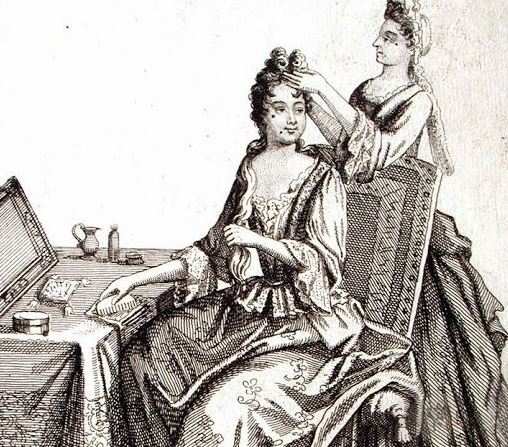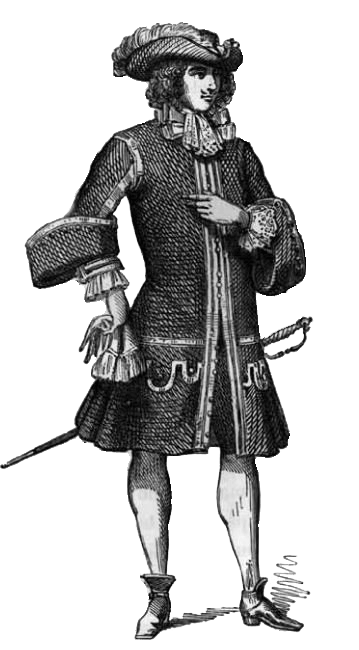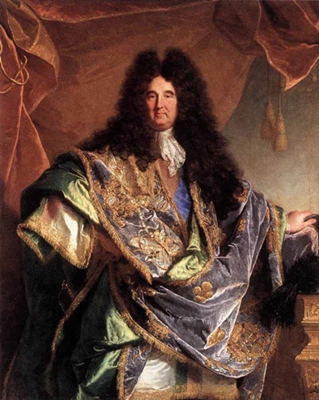Dangeau’s Diary, October 1685

2d. — The King at his levee received the intelligence that all the town of Castres was converted.
5th. — We have learnt that Montpellier and all the diocese, as well as Lunel, Maugnio, Aigues- mortes, are converted. The diocese of Nismes, the same.
7th. — The death of Vittorio Siri, historiographer to the King, was announced. He had been employed to write the King’s history in Italian. His book is replete with memoirs, which he had from Cardinal Mazarin and Monsieur de Lyonne. The King at his levee told the nuncio that he had received intelligence, that the whole town of Uzes had been converted, in imitation of Nismes and Montpellier, and that he had no doubt the Pope would be highly gratified with the news. A stag wounded the Prince de la Roche-sur-Yon with a blow of its antler, between the eye and the temple. The shock lifted him up a considerable distance from his horse. It is hoped the wound will not prove dangerous. The skin of his face has been sewed up, he will therefore bear the mark of it during life. The King has neither asked nor sent to inquire after him. The Princesse de Conti has had a fever all day and night. It is expected her illness will continue. They say it is in consequence of having had a misunderstanding with the King.
12th. — The illness of the Princesse de Conti continues and the King learnt at his levee that small pox had made its appearance. He immediately went to her, and consoled her by every obliging and kind expression, like a man willing to forget the pain she had caused him. The Princesse de Conti appeared sensibly affected by the King’s goodness, which will enable her to bear her disorder patiently. The Prince de Conti has resolved to attend upon his wife, although he has never had the small pox. The King would not see either Monseigneur or the Dauphine, because he had visited the Princesse de Conti, but Monseigneur went to him in the billiard-room.
15th. — We heard, at the King’s levee, that almost all Poitou has been converted. Also that at Grenoble all the Huguenots had abjured.
18th. — The ambassador from Poland had an audience with the King and of all the royal family. He addressed the King in Latin, and the rest of the family in French. He was introduced by Monsieur de Marsan. He will be magnificently entertained here by the King’s officers for three days. The King sent the Duc de Saint-Aignan, first gentleman of the bed-chamber to compliment him, as did the Dauphine the Marshal de Bellefons, her first gentleman. Monseigneur has not yet deputed any person to perform the same office. The Princesse de Conti has been in great danger, but bleeding has relieved her.
11th. — Two days ago the King ordered all the Huguenots, who have settled at Paris within the last twelve months, to quit it immediately and it was known this morning that the Chancellor had affixed the seal to the Revocation of the Edict of Nantes. The secretaries of state have despatched couriers into all the provinces of their departments, in order that it may be published on the same day throughout France. Besides the Revocation of the Edict of Nantes of 1598, the Edict of Nismes of 1629, and the other edicts and declarations, given in favour of the pretended reformers, are revoked. An order has been issued for all the ministers to quit the kingdom within fifteen days. The children who are born, are to be baptized and brought up in the catholic religion. Those persons who shall have quitted the kingdom are allowed four months to re-enter it, in default of which, their property is to be confiscated. Those that remain in France are to enjoy their property without molestation on account of religion.
21 st. — The Prince de la Roche-sur-Yon resolved to quit the court for a few days, perceiving that his appearance there was disagreeable to the King, who has not spoken a single word to him since his return. The King wished to be present at the abjuration of the Duke of Richmond, natural son of the King of England, and knight of the Order of the Garter. It took place in the chapel after mass. Monsieur de Meaux pronounced a fine discourse, throughout which he styled the Duke of Richmond a Prince. The King and Monseigneur signed the abjuration as witnesses. The King some time ago raised the estate of Aubigny, in Berry, into a Duchy and Peerage, in favour of the Duchess of Portsmouth, the duke’s mother.
22d. The Revocation of the Edict of Nantes has been registered throughout the Kingdom, and the destruction of the protestant churches, which still remained, has commenced.
24th. — The Prince de la Roche-sur-Yon wished to return here and it was thought that he would have made a longer stay at Chantilly. Monsieur le Prince had even advised him to it. His true friends thought that his absence might bring about his reconciliation with the King, but he thought otherwise, and has returned. Monsieur de Chaulmes has set off for Brittany. He hopes to be able to convert the Huguenots, who are but few, without requiring the intervention of the soldiery.
28th. — It is thought that the marriage of the King of Portugal with one of the daughters of the elector Palatine, is settled. Mademoiselle de Bourbon has learnt this with much satisfaction, as she was very apprehensive of being destined to be the Queen of that country. She had even spoken upon the subject very respectfully, but, at the same time, very decidedly, to Monsieur le Prince and Monsieur le Duc. (Mademoiselle de Bourbon, Marie Thérèse de Bourbon, later married François Louis de Bourbon, Prince de Conti, here still named the Prince de La Roche-sur-Yon)
29th — Monsieur de Louvois has sent to entreat that the King would dispense with his bringing back the seals after the decease of the Chancellor, his father, who is dying. The children of the Chancellor generally return them, but Monsieur de Louvois begged his Majesty would be pleased to command Monsieur de Seignelay to fetch them. The Chancellor’s career has been an honourable one, both his life and death are creditable to him, for his senses are still perfect, and he dies with firmness and christian fortitude.
30th. — The chancellor died at Paris, about three o’clock, in the arms of Monsieur de Louvois, who first communicated his intentions to him. He, however, passes through Chantilly, intending to give the Prince an explanation of his proceedings. It is much feared that this affair will compromise the Princes de Conti with Monsieur le Duc. About six o’clock in the evening, the King sent for Monsieur Boucherat and made him Chancellor, and gave him the seals. Bontemps fetched him in his coach. Monsieur Boucherat is above sixty years of age. The King sent for Monseigneur and the Dauphine into his cabinet, and showed them the seals before he gave them to the new Chancellor. It is not yet known whether he will be a Minister of State, frequently the Chancellors are not so, which was the case with Monsieur d’Aligre and Monsieur de Seguier.



